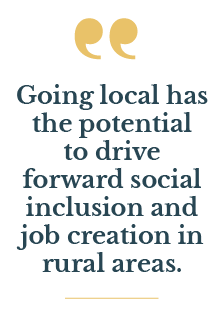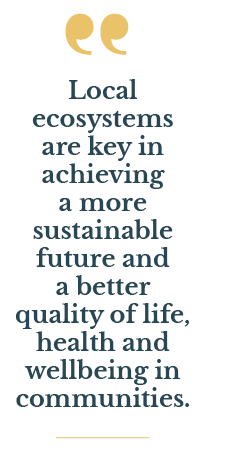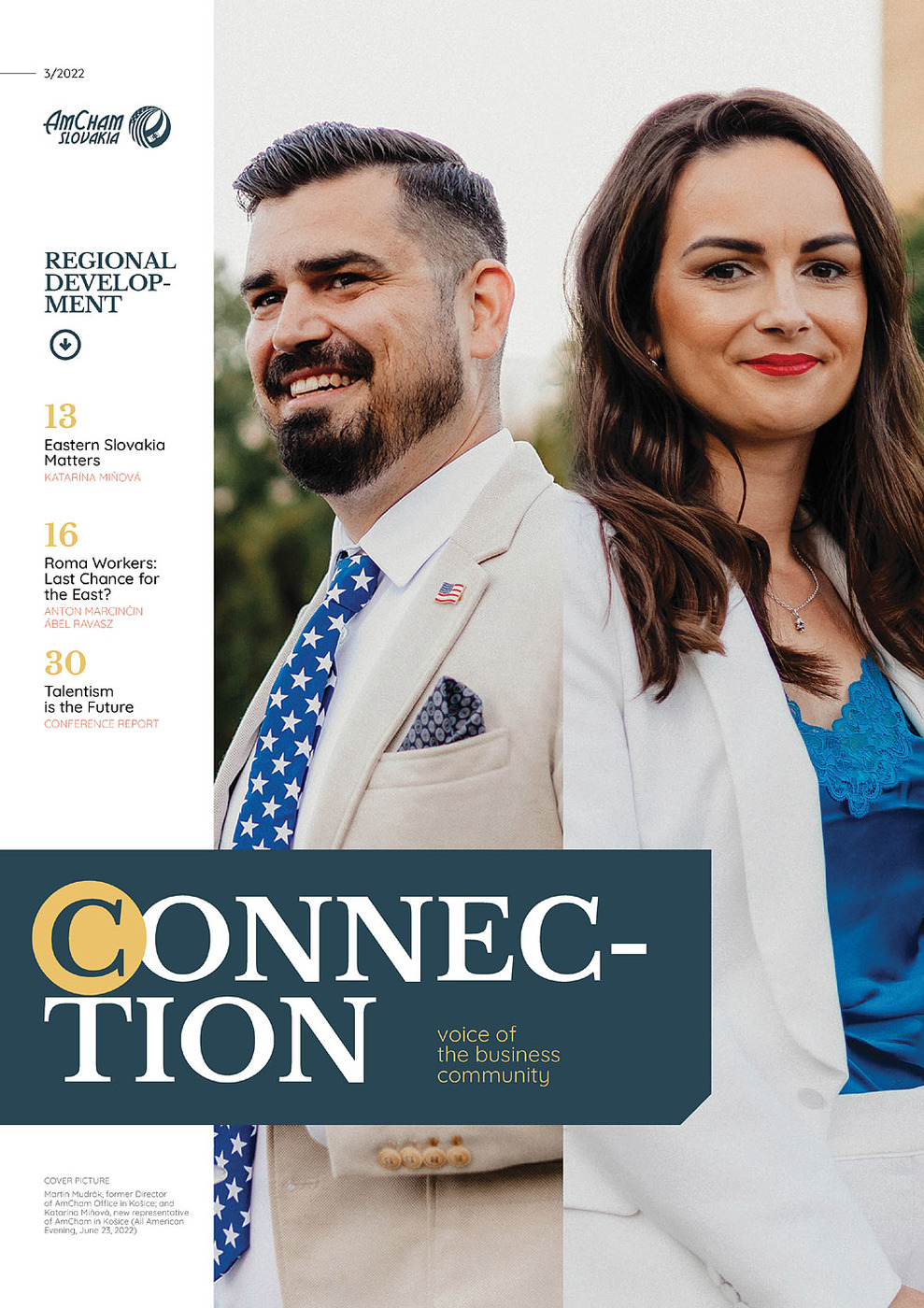Moreover, this has also stimulated the need to re-think complex and overarching value chains that become prone to risks brought by the respective events. Nevertheless, along with the uncertainties the current situation features, opportunities are present as well – going local certainly being one of them.
Local ecosystems are key in achieving a more sustainable future and a better quality of life, health and wellbeing in communities. Both ecosystems and communities are diverse and inter-related, with the ability to contribute to regional development. An essential building-block of local ecosystems is presented by a well-functioning agri-food supply chain. Nevertheless, globalization of the agri-food supply chains has been a trend for decades due to various factors incl. trade liberalization, increasing demand for food in countries with growing population or strong purchasing power. The global context fully exposed the vulnerabilities of present agri-food systems caused by inter-linked disruptions (political situation, pandemic, economic instability, energy prices…).
An essential building-block of local ecosystems is presented by a well-functioning agri-food supply chain. Nevertheless, globalization of the agri-food supply chains has been a trend for decades due to various factors incl. trade liberalization, increasing demand for food in countries with growing population or strong purchasing power. The global context fully exposed the vulnerabilities of present agri-food systems caused by inter-linked disruptions (political situation, pandemic, economic instability, energy prices…).
These developments, on the other hand, only strengthened the significance of agri-food supply chains as a greater part of local ecosystems with the aim to ensure more resilient, fit-for-future agri-food systems able to respond to the unprecedented circumstances. The respective concept has also been endorsed by the EU Green Deal and its Farm to Fork Strategy.
Building on the concept of an enhanced role of local ecosystems in providing food to people poses a unique opportunity at the national (and regional) level. This is particularly relevant for Slovakia, a country with an agri-food heritage and a potential to capitalize on the merits of local and regional agri-food production. Nevertheless, a positive change in terms of better functioning local agri-food supply chains cannot be achieved individually but by creating synergies to strive for regional cooperation along the chain for different types of products.
The ambition to enhance regional and local agri-food systems has also been at the heart of the National Agri-food Strategy 2035 that inter-alia acknowledges them as an essential tool for improving supply chains’ sustainability, environmental footprint mitigation (by shifting from a global approach to a regional one), securing better relations along the chains as well as for enabling consumers to enjoy diverse, safe and sustainable food.  In addition, going local has the potential to drive forward social inclusion and job creation in rural areas. The future will, in this respect, require facilitating strategies focused on regional characteristics (e.g. regional specialty foods, sense of belonging to the region), human capital development (e.g. attracting young people) and environmental protection. In this way, restoring local ecosystems connected to agri-food practices could serve as a helping hand to mitigate the depopulation of rural areas, improving living conditions and subsequently fostering growth to ensure vitality and attractiveness for future generations.
In addition, going local has the potential to drive forward social inclusion and job creation in rural areas. The future will, in this respect, require facilitating strategies focused on regional characteristics (e.g. regional specialty foods, sense of belonging to the region), human capital development (e.g. attracting young people) and environmental protection. In this way, restoring local ecosystems connected to agri-food practices could serve as a helping hand to mitigate the depopulation of rural areas, improving living conditions and subsequently fostering growth to ensure vitality and attractiveness for future generations.
Setting out the direction for a modern ecosystem which would facilitate sustainable growth of the entire agri-food supply chain and enhance its resilience is not an easy task. However, it is an achievable goal. Anchored both in the EU and national strategies, the need for action remains highly relevant. One may argue that there had been many strategies, documents, or frameworks which had not always worked out perfectly, but the situation now is different. The need for transformative change is witnessed trough the events that changed the world. Along with climate and environmental challenges, the current crises have put ecosystems under pressure and further revealed imbalances along the agri-food supply chain. The respective distortion has demonstrated the need to re-invent its functioning with a clear aim – to make it resilient and robust.
Those elements can be seen as key enablers for creating socio-economic and environmental gains for the benefit of people, their health and well-being. Nonetheless, building such a supportive, future-proof ecosystem requires a willingness to contribute in a cooperative manner from all the links involved within the agri-food environment. Moreover, the aspect of mutual trust, respect and shared responsibility cannot be overlooked. This is naturally not an easy task, but it also creates a room to bear fruits of success along the way to success. Success translated into the ability to restore ecosystems, re-think better functioning agri-food supply chains, address economy, social and environmental challenges and improve adaptations to new trends and circumstances which are constantly evolving.
Fostering improvements along the lines outlined are vital to growth, jobs, sustainability as well as people’s health and well-being. It is therefore essential to act in finding common solutions to bring in the positive change for a reinforced potential of livelihood within the local ecosystems aligned to resilient agri-food system models. And the time is now.
David BIELIK, Account Manager, FIPRA Slovakia



Follow us